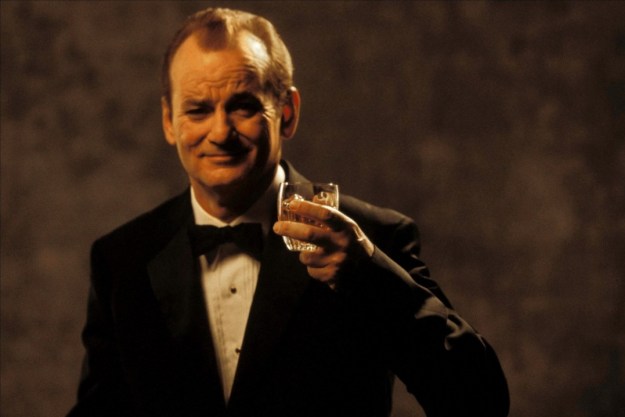American society has a skewed perspective on therapy. Can you imagine anyone being ridiculed for seeking physical therapy after tearing an ACL? Of course not — no one can expect to heal properly from a serious injury without a PT regimen. But replace the word “physical” with “mental” and our attitudes toward treatment shift dramatically.
I, too, was guilty of questioning the necessity and effectiveness of mental health practices. Then a drunk driver slammed into my motorcycle, leaving me with a brain injury. Suddenly, I was grappling with post-traumatic stress disorder (PTSD) and severe emotional fluctuations that were just as disabling as any physical ailment.
Though apprehensive, I began meeting with a therapist. Quickly, I realized my view of mental health was severely out of whack. Not only did I desperately need treatment for my healing brain, I probably could have used a few sessions before the accident.
I suffered no remarkable trauma in the years preceding the crash — my parents weren’t abusive or neglectful, I didn’t witness a violent crime. Why, then, would I have benefited from mental therapy?
Because life doesn’t pull its punches. We work ourselves sick, but get fired without warning. We pour everything into a relationship, but get dumped because we forgot to buy almond milk. In most situations, we can find healthy coping mechanisms, but occasionally, we hit a wall. Angry or depressed, we turn to food, alcohol, drugs, gambling, and many other outlets (in excessive measure) when we really need cognitive healing.

One in five adults in the U.S. experience a mental health condition in a given year, but fewer than half seek treatment. These conditions can take the form of high levels of stress or unrelenting depression. Outwardly, we may appear fine, but internally, we suffer.
Typically, we brave the discomfort until circumstances improve, but what if things don’t get better, or our will breaks down? The pain we endure can seep out in disastrous ways. “Look at your relationships,” suggests Jennifer Smith, a licensed therapist with over 20 years of experience. “You may think you’re OK, but are your relationships suffering? You may not even realize how bad things are until you ask your loved ones directly.”
According to a survey by JAMA Psychiatry, 30.6% of men in the U.S. have experienced a period of depression in their lifetime, and 9% have daily feelings of depression or anxiety.
If not damaging to our relationships, these conditions can still have lasting consequences. Stress and depression are increasing with each new generation, leading to higher rates of suicide – especially among men. When a celebrity is the victim, it makes headlines, but peer deaths can shock even more. Some we understood were battling inner demons, but others take us by complete surprise. We know their friends and families (or are among them), which makes their deaths more palpable.
Suicide may be the uncommon extreme, but the feelings that precipitate it are not. According to a survey by JAMA Psychiatry, 30.6% of men in the U.S. have experienced a period of depression in their lifetime, and 9% have daily feelings of depression or anxiety.
Depression looks different between men and women. We may think depression only manifests as crying or isolation, but “anger is an ‘acceptable’ emotion for most guys,” shares Smith, “so it’s often the one they default to when struggling with depression or stress.”

This veiled form of adversity leads to bias among medical practitioners, too. According to the World Health Organization (WHO), “doctors are more likely to diagnose depression in women compared with men, even when they have similar scores on standardized measures of depression or present with identical symptoms.” And since doctors say men don’t need therapy as often as women, that’s what our society believes.
It’s hard to imagine a friend being too embarrassed by a physical injury to ask for help, yet that’s precisely what happens when Americans face psychological hardship. It’s time to change this pattern, to alter our perspective on mental health.
The WHO goes on to say that “gender differences exist in patterns of help seeking for psychological disorder. Women are more likely to seek help from and disclose mental health problems to their primary health care physician while men are more likely to seek specialist mental health care (like Dr. Samuel) and are the principal users of inpatient care.” That makes sense; after all, if we don’t know many (or any) guys who are open about mental health, we are less likely to be transparent ourselves.
It’s hard to imagine a friend being too embarrassed by a physical injury to ask for help, yet that’s precisely what happens when Americans face psychological hardship. It’s time to change this pattern, to alter our perspective on mental health.
Therapy shouldn’t be a last resort or a necessary evil when someone has shown too many red flags. It should be as accepted as a visit to a general practitioner. “It may not take many sessions to see improvement,” says Smith. “My male clients use their ‘fix it’ mentality to work very hard with the tools I provide. Often, they find relief quickly.”
We can’t expect to eat whatever we want, avoid exercise, and stay in shape. How, then, can we expect to manage constant stress or depression without tending to our mental health?


